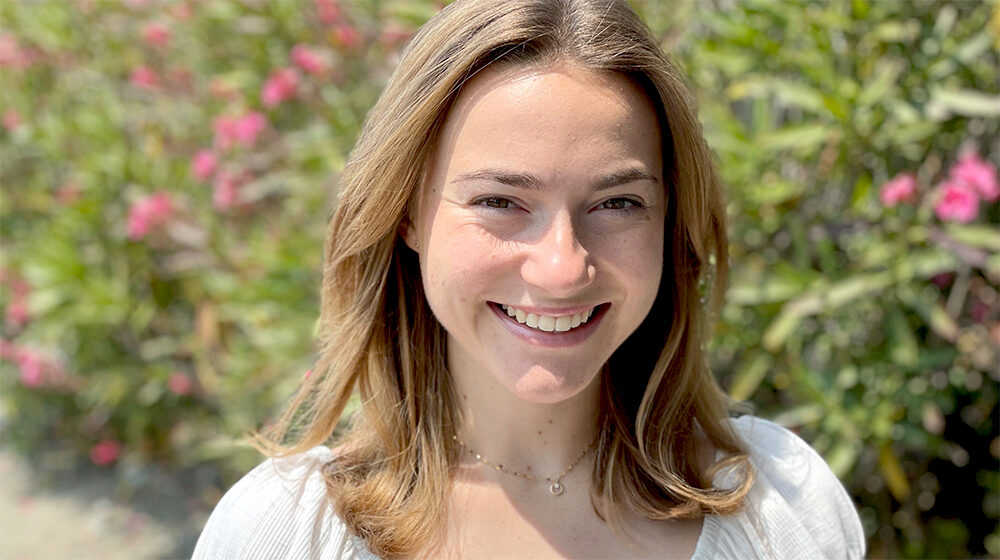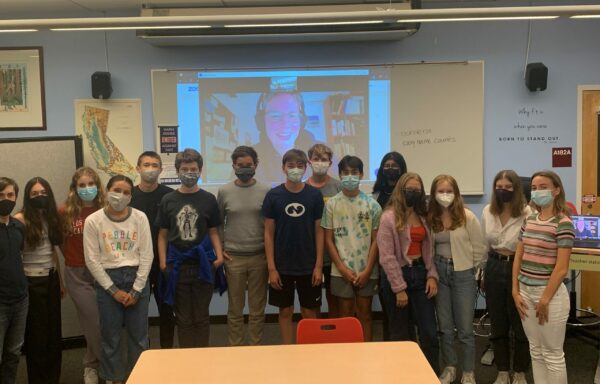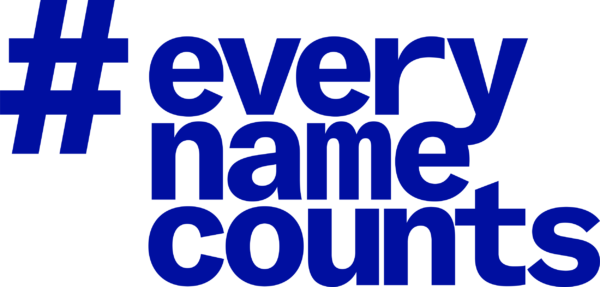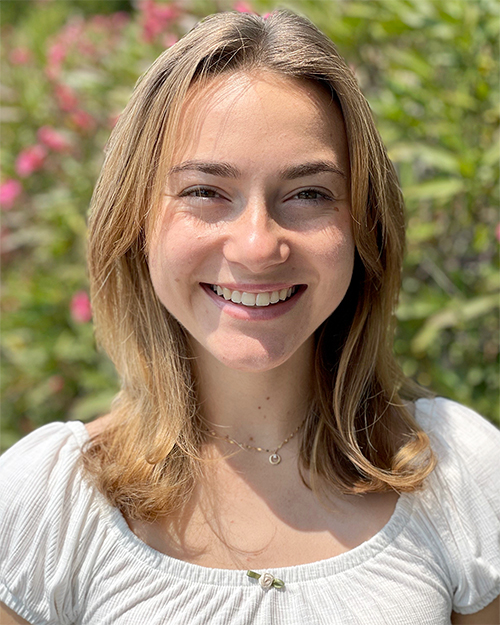#everynamecounts worldwide: 17-year-old gets involved at her school in San Francisco

#everynamecounts is attracting attention from all over the world: Our new student ambassador Nicole Hoelzle from San Francisco has found her personal connection to Nazi history in #everynamecounts. As president of her Model UN chapter, part of a global network of groups at High Schools across the world that take part in simulations of the United Nations General Assembly, Nicole wants to motivate her peers to get involved in social responsibility. The 17-year-old will present the initiative to her fellow students in a workshop with the Arolsen Archives.
How did you hear about #everynamecounts and why do you support it?
I first discovered #everynamecounts in the summer of 2020 during the pandemic. I wanted to do something significant with the free time I had and found the #everynamecounts project on Zooniverse. Every day for a few weeks, I spent a couple of hours entering names and personal information into the system. What I like about #everynamecounts is that it’s really interactive. When I put my first question to the community, I was surprised how fast people reacted and helped me, and I could see that other people were actively working on the project at the same time as me, in English, in German – people from all over the world are working on it.
Because of my German roots and my love of history, I immediately felt a personal connection to the project. Since I hold the same belief as the Arolsen Archives, that the victims must never be forgotten, I want to work alongside the Arolsen Archives and spread the word about the initiative. Young adults like me need to do their part to educate future generations about the Holocaust and discrimination.
Do you remember a document that you found particularly moving?
There are two documents that stand out to me. I remember that I entered the information of a young girl when I had just started with #everynamecounts. I entered her name, her last name, her date of birth – and then all of a sudden I realized that she was sixteen years old, just like me back then. I had to pause for a second. I was the same age, and I was upset about quarantine and not having a sweet sixteen birthday party. Reality really hit me, and I realized that 75 years ago someone my age was experiencing something a lot worse than anything I have ever experienced.
A year later, I was working on the Geo Workflows with prisoner cards, and I had to put in addresses. There was a document of a man from France. When I took down his address I went on google maps, and seeing his street there was really horrifying to me. Now it is 2021, and the street still exists. It’s a normal street, but I knew the dark history behind it. Both the girl and the Frenchman made me feel as if I was seeing the results of National Socialism and the Holocaust with my own eyes.
In a workshop on September 30, you promoted #everynamecounts at your school and in your Model UN chapter. What was your motivation to do this? Why do you want your fellow students to engage with #everynamecounts?
Even though I know my contribution to #everynamecounts has already been meaningful, in my eyes it’s not enough. I know that Germany carries the burden of that dark past with the Holocaust, and they feel a responsibility to educate people about the truth. Students in America might not have that same attachment, but it is still important to do something like this project here. Because in America there are antisemitic incidents in our country as well. We have even had antisemitic incidents in my own school. As president of my Model UN chapter, it’s my responsibility to encourage my club members to be active members, to promote peace, justice, and the protection of human rights.

#everynamecounts student ambassador Nicole Hoelzle (right) and Christa Seidenstücker of the Arolsen Archives (background) during the workshop with 9th and 10th grade students at Red Wood High School in San Francisco.
What is your experience of Holocaust education in the US?
I experienced Holocaust education differently than a lot of my peers, because I am a dual citizen. My father is from Germany, and I went to a German school for a while. When I learned about the Holocaust in my history class, it was definitely not done in the way I assume it is done in Germany. I feel especially connected to it, because on the one hand I feel German, but I am also American. These countries were in two very different places during the war. I am proud of my unique German-American identity, but I also feel responsibility for my countries’ past. I want to ensure that I help make positive changes to ensure that my generation won’t let something like that happen again. Though in general, my generation is more removed from the Holocaust than my grandparents’ generation, I think every person holds a responsibility to remember the Holocaust, also the US. No matter where you are from, you should learn about this history.
Why is social engagement so important to you?
When I started to participate in Model UN, I had to educate myself on world issues. I have had to come up with my own solutions for problems and represent different countries with different viewpoints. At the age I am now, I see this way of educating myself as part of my engagement. When I grow up and when my peers grow up, we need to be able to find solutions to difficult problems and questions.
Apart from that, I remember that in my German School, we learned about “Die weiße Rose,” about Hans and Sophie Scholl, and about civil courage. The story of Hans and Sophie as young adults like me inspired me and made me realize that no matter how old we are, we all need to take action to engage in social issues. Because soon enough we will be grownups and have the responsibility to fight antisemitism and discrimination.


»Soon enough we will be grownups and have the responsibility to fight antisemitism and discrimination.«
Nicole Hoelzle, Student ambassador for #everynamecounts
In general, do you think #everynamecounts can help people understand National Socialism and make them engage with current social issues and commemoration?
I absolutely think so. As I said earlier when I was talking about the documents, when I first participated in the project, I felt this personal connection to history and to what happened in those days. Other people my age might initially feel reluctant to engage with the topic, because we were not alive when it happened, it was all such a long time ago. But #everynamecounts made me feel closer to history. Seeing the stories of these people who endured this terrible time gave me this extra personal layer of attachment.
There are so many names that I have seen, it’s hard to fathom all of them. But if every person sees a name and types it – doesn’t just read the name, but actively types it – that’s an active commemoration of the fact that this person did exist, and hopefully their family will be able to find them, or someone in future will be able to find out about their story. #everynamecounts gives every one of us a way to establish a personal connection, whether they have hours to spare or just ten minutes, they can contribute to something that is larger than themselves.
Learning about the Nazi era can teach us to be aware of the power of hate, and we need to use that awareness to educate future generations that will be even more distant from this history. The phrase “Never again” is often said, but we need to make sure that it really does never happen again.
Thank you so much Nicole.

